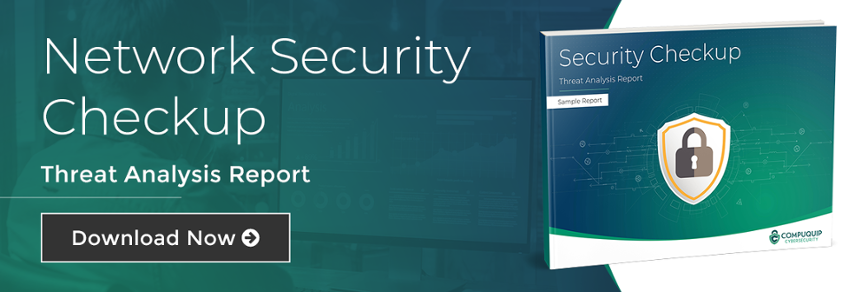Be Proactive about Network Security Updates!
Here’s a quick public service announcement from the whole Compuquip team:
“You should be more proactive about your network security updates!”
While engaging in proactive security management and updating your network security before problems occur sounds like a good idea, you might have some questions. For example, “What does being proactive about network security really mean?” or, “Why should I be proactive about updating my network security?”
What is Proactive Network Security Management?
So, what does it mean to have proactive security management? If an approach can be proactive, what’s the opposite of that?
To sum up the proactive approach to network security and compliance management succinctly, it could be defined as working to prevent security breaches before they happen. However, as simple as this definition sounds, proactive security management involves a lot of time and effort—which may be why many companies simply use a reactive cybersecurity approach.
Reactive cybersecurity is the complete opposite of proactive security management. Instead of preventing breaches, reactive security strategies wait for something to go wrong and then try to fix it. The problem with this is that it opens up the business to enormous data breach and data loss risks.
As the old saying goes: “Those who fail to plan, plan for failure.”
Why Should You Be Proactive about Network Security Updates?
Here are a few of the primary reasons to proactively update your network security rather than relying on a “break-fix” strategy that only activates after the damage is done:
- To Save Money. Strong cybersecurity measures can be expensive—costing thousands of dollars or more depending on their complexity and the expertise required to maintain them. However, this cost is still cheap compared to the cost of the average data breach which, according to Ponemon’s study, was $3.86 million in 2018. Merely preventing one possible data breach could offset the cost of years or even decades of proactive cybersecurity expenses.
- To Minimize the Impact of a Breach. Even the best defenses may still fail. However, having proactively worked to improve cybersecurity and acquire the tools needed to counter attacks can help reduce the damage they do. For example, if you have multiple layers of defenses to keep assets on your network isolated, it will take longer for an attacker to get off one system and move onto another. This gives you more time to eliminate the breach and minimizes the risk of sensitive data and systems being compromised. This keeps the impact of the breach smaller and easier to deal with.
- To Preserve Your Company’s Reputation. There’s one thing that no amount of money can buy: a good reputation. One of the biggest impacts of a data breach is the loss of reputation—especially if it’s found that the company didn’t do anything to prevent the breach in the first place. Proactively working to update your network security helps to both stop such breaches from occurring and shows how dedicated your company is to protecting sensitive data.
- To Improve Compliance Management. Security compliance standards are in a state of constant flux as new cyber threats emerge, security tools are made to counter them, and state agencies work to keep up with what the “best practices for cybersecurity” should be in a given industry. Waiting until a new security compliance standard is released to start making changes may leave you scrambling to find a solution to a challenge at the same time thousands of other companies are looking for the same solution—which can delay implementation schedules and make compliance management more hectic than it needs to be. By adopting new cybersecurity measures that go beyond current compliance standards, you can reap the benefits of being proactive when your competitors are struggling to keep up.
Do you need help creating a proactive network security strategy? Reach out to the team at Compuquip Cybersecurity for help and advice today!

